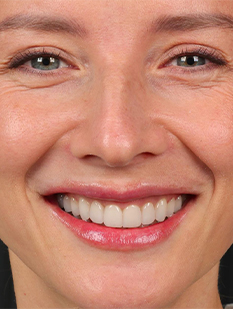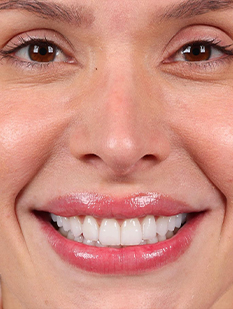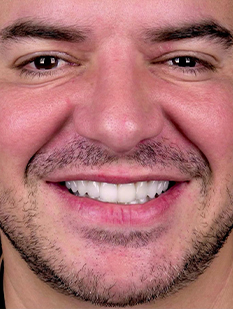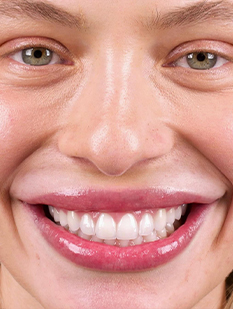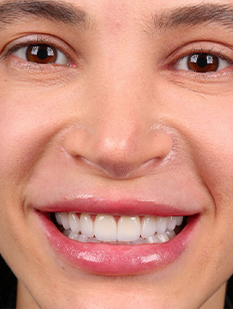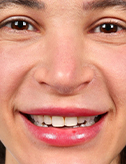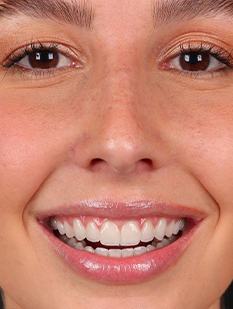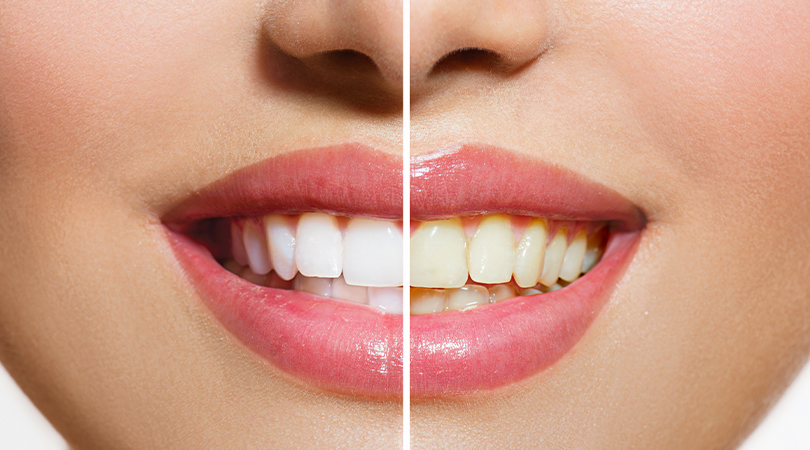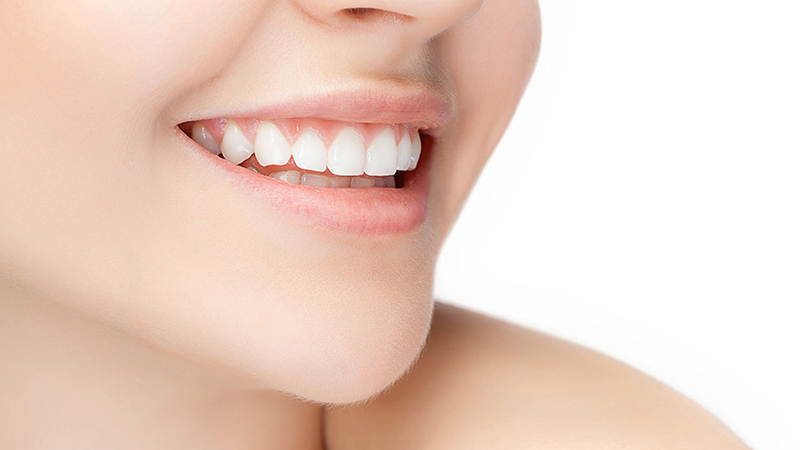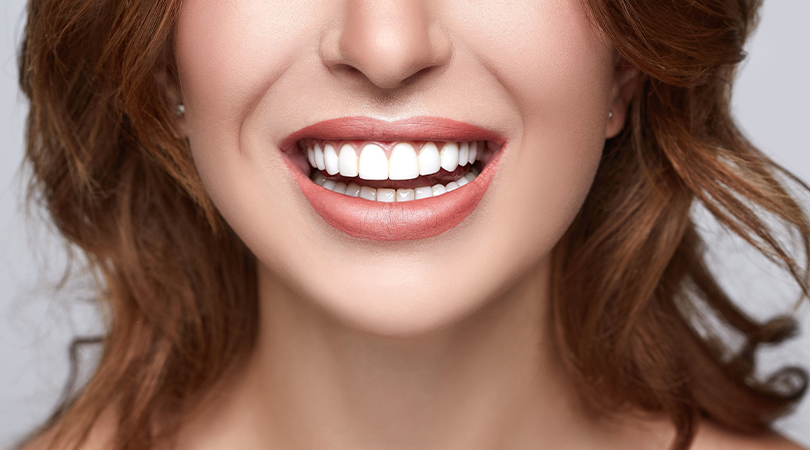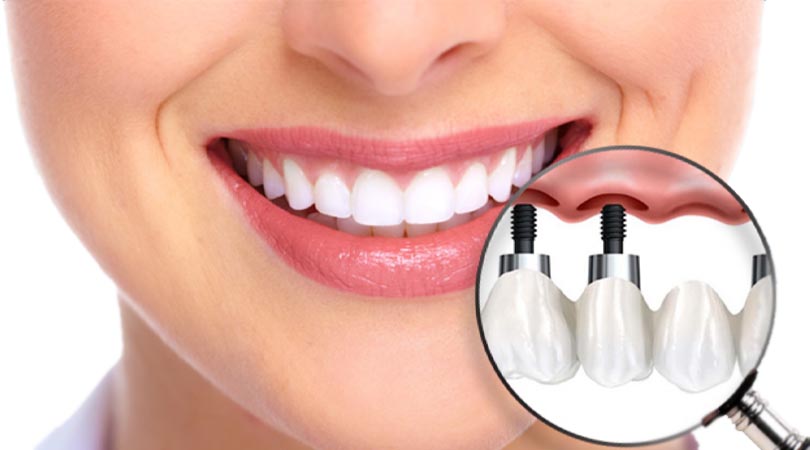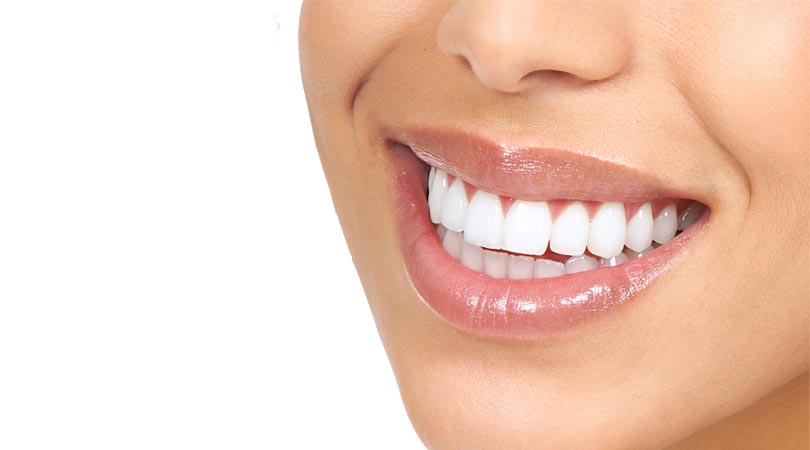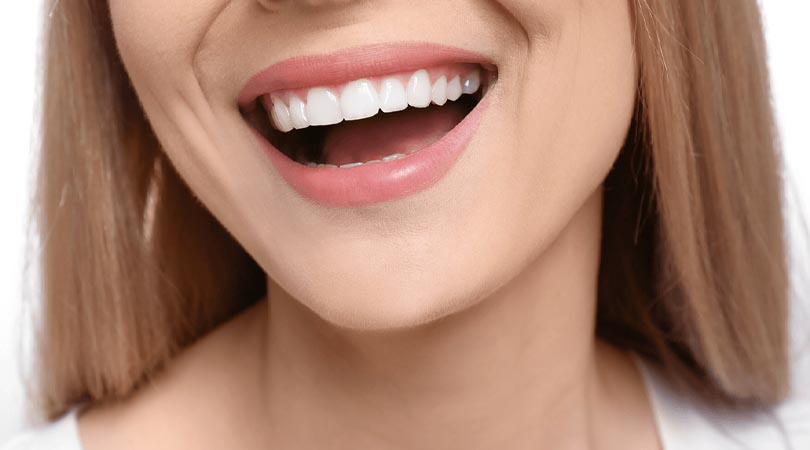
Porcelain, a material that does not contain toxic substances, is one of the products frequently used in dental veneer applications. Porcelain, which has no known side effects thanks to its biocompatibility, is widely used in dental veneer applications.
Porcelain tooth veneer application, which is called porcelain tooth coating because porcelain is used as raw material and has an effective place in dental aesthetics, is an effective application that provides satisfactory results.
What Is Porcelain Dental Veneer?
Porcelain dental veneer application, which is a kind of tooth coating, is a painless application. It is frequently used for significant tooth fractures and for aesthetic purposes. Although there are different types of porcelain tooth veneer, it is usually applied with metal support due to its durability.
What Are The Features Of Porcelain Tooth Veneer?
Porcelain veneer applications give results close to natural, although not as much as zirconium teeth after the procedure. In the porcelain tooth coating application, where high patient satisfaction is achieved, there are no side effects due to the material used. Porcelain dental veneers are pressure resistant, so they can be used for a long time if oral care is done correctly. There are different types in itself, such as porcelain tooth coatings in which ceramic is also used, porcelain tooth coatings with metal use and porcelain tooth coatings in which only porcelain is used. Porcelain dental veneers are painless applications.
How Are Porcelain Dental Veneers Done?
Porcelain veneers are a dental treatment completed in sessions. In the first session, the patient’s general dental examination is performed, then the teeth are filed and reduced according to the details of the procedure. Then the patient’s mouth measurement is taken. After a detailed measurement, temporary veneers are applied to the patient. Thus, while the permanent veneers are prepared according to the patient’s measurements, the patients do not experience any difficulties.
Within the scope of the measurements taken, veneers are prepared according to the preferences of the patients. After the infrastructure of the coating is created, porcelain work is done. Afterwards, the coating products prepared in a new session are rehearsed in the patient’s mouth and the coating is finalized. Details such as color and polish are determined. Permanent veneers are applied to patients after patient approval. If the procedure does not pass the patient’s approval, the products are re-made before the application of the permanent coatings, according to patient’s preferences.
Porcelain veneers, also known as veneer crowns, can be prepared with metal support or full ceramic. There is no room for bad surprises in porcelain tooth coatings, as approval is obtained from the patient at each stage of the application.
Who Can Have Porcelain Dental Veneers?
Those who have deficiencies in the order of their teeth, patients with insufficient dental filling, color changes in their teeth, fractures and distortions in their teeth, those whose teeth are worn due to different reasons, those who have cavities on the tooth surface and those who have aesthetic concerns about the appearance of their teeth can have porcelain tooth coating.
There is an 18-year age limit for porcelain tooth coating, which is generally used to eliminate deformations in the teeth.
What Are The Advantages Of Porcelain Tooth Coating?
Porcelain dental veneers have many advantages. The first of these is undoubtedly the advantage it provides in cases where the filling is insufficient due to caries on the tooth surface. In addition, porcelain tooth veneer application has a lower cost than many dental treatments. Another advantage of this treatment is that the treatment period of porcelain tooth coating, which is frequently preferred because it also helps with smile design, is short.
Porcelain dental veneer application is an application made with durable materials. Therefore, the porcelain tooth made can be used for a long time, such as 10 years. Being both low cost and long-term are among the biggest advantages of the treatment.
What Are The Disadvantages Of Porcelain Dental Veneer Application?
Porcelain dental veneers are reliable and comfortable procedures, but they also have some disadvantages. Metal-supported veneers, which are one of the porcelain tooth veneer options mentioned above, have low light transmission. Since the light transmittance is low, the tooth color may not look natural enough.
Another disadvantage of porcelain dental veneers is that although this process is reliable and robust, hard-shelled foods such as walnuts and hazelnuts should not be tried to be broken with teeth. This can damage your porcelain tooth crowns.
In order to provide a more aesthetic and harmonious appearance in porcelain tooth veneers, the teeth are filed more than other veneers before the application.
In addition, when it comes to porcelain dental veneers, the appearance of these veneers is matte, as special metal bridges are used to support the ceramic. Porcelain veneers are not exactly in natural tooth color, especially as the metal in the substructure deforms over time.
How Long Is The Life Of Porcelain Dental Veneer?
The lifespan of porcelain dental veneers may vary from patient to patient. In addition, the use of first-class quality products and materials during application is one of the factors affecting the life of porcelain tooth coatings. With a good oral care and regular general dental check-ups, the life of a porcelain tooth coating application made with first-class materials can vary between 10 and 20 years on average.
What Should Be Considered After Porcelain Tooth Veneer Application?
In the first hours after the application, partial numbness and mild tingling in the treatment area is expected. They will pass spontaneously within the first few hours of application. At this point, as long as the feeling of numbness continues, patients should not eat or drink anything in order not to harm themselves.
Minimal pain in the veneered area is an expected situation. These minimal pains will pass as your mouth gets used to the coatings. If our patients do not want to wait at this point, the pain can be easily controlled with painkillers depending on the course of the pain.
Porcelain dental veneers are procedures performed in sessions. During the preparation process of permanent veneers, temporary veneers are applied to patients. These dental veneers are more sensitive and fragile than permanent veneers. For this reason, during the treatment, patients should avoid foods that will damage the veneers and thus their own gums in their diets. The durability of porcelain dental veneers varies according to the care. Brushing the teeth with fluoride-containing toothpaste at least twice a day and using dental floss regularly after will extend the life of the procedure.
Porcelain dental veneers, which are as practical as they are comfortable and affect our smile and appearance in a positive way, are applications that must be done by competent physicians. For detailed information about porcelain tooth veneer application, you can always reach us from our phone numbers. By creating your examination appointment, you can send your questions to our experts, and you can contact us today to get a brand new look.
Contact us now to get elegant and aesthetic teeth that complement beautiful smiles!
Frequently Asked Questions
What Is The Price Of Porcelain Dental Veneer Application?
Porcelain dental veneer application differs according to the details of the process. In addition to the scope of the process, the use of metal-supported or non-supported materials in the infrastructure of the coating is also one of the factors affecting the price.
Is Porcelain Dental Veneer Application Harmful?
Porcelain dental veneer application is a reliable process. It has no known side effects. After the porcelain tooth coating application, short-term sensitivity may develop in the process area and in the gums around the applied tooth, which is expected. However, there is no recorded harm in the application of porcelain tooth coating.
Is Porcelain Veneer A Painful Procedure?
Porcelain veneer application, which is a comfortable procedure and applied in sessions, is among the dental treatments that we can call almost painless. Sensitivity may occur in the treatment area after the application. In the same way, partial sensitivity may occur in the gums. However, these pains and sensitivity will go away on their own within 1 week of application. In addition, if needed, partial pain and sensitivity after the procedure can be relieved with oral painkillers.
How Should Oral Care Be Done After Porcelain Tooth Veneer Application?
Applied crowns not only give an aesthetic tooth appearance, but also serve the function of natural teeth. For this reason, it is sufficient to do your oral care in the usual routine and hygiene after the porcelain tooth coating application. You should brush your teeth at least 2 times a day, use mouthwash, and have regular tartar cleaning. In addition to these, you should provide full care in the mouth by using dental floss in places where the toothbrush cannot reach. Having a general dental examination once a month is also one of the practices that will help you keep your oral care under control.
Do Porcelain Veneers Fall Off?
The coatings, which are specially prepared for application and adhered with proven strength adhesives, are quite durable. However, just like natural teeth, the exposure of veneered teeth to foods with thick shells damages the veneers. Correctly measured and bonded teeth are strong enough to be used for more than 10 years.
 Nederland
Nederland Français
Français Türkçe
Türkçe







